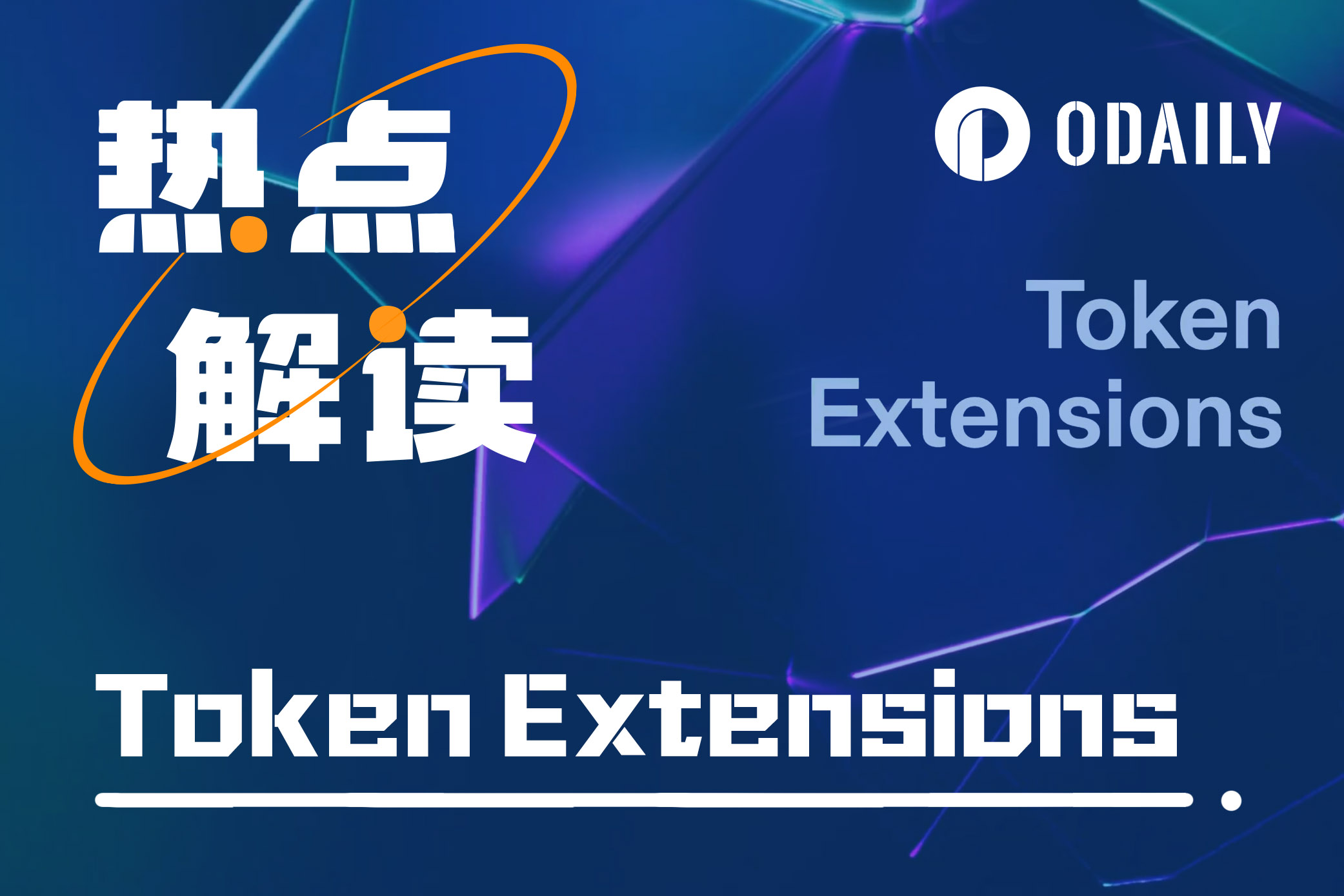Solana推出SPL代币标准,自带13项新功能,意在放大B端市场?
原创 | Odaily星球日报
作者 | 南枳

Solana 基金会宣布推出网络 SPL 代币的新标准“Token Extensions”,Token Extensions 是下一代 Solana 程序库标准,旨在帮助企业在 Solana 网络上提供更高效的安全性和合规性服务,为 Solana 上的数字和 RWA 资产提供灵活、安全的工具。
Token Extensions 引入了一组新的方法来扩展常规的代币功能,最初的 Token 标准引入了转账、冻结、铸造代币等基本功能,而 Token Extensions 包括相同的功能,但还包括如隐私转账、自定义传输逻辑、扩展元数据等。它们为企业和开发人员解锁了新功能,在某些情况下,这些功能以前在公链上是不可能实现的。
Solana 表示,加密服务公司 Paxos 和稳定币发行商 GMO-Z.com Trust Company 目前已经采用了 Solana 的 Token Extensions 来发行稳定币。
Token Extensions 带来了哪些功能?
据 Solana 文档指出,共有 13 种 Token Extensions,其具体功能和官方推荐用例,Odaily星球日报根据宣发文档和技术手册整理如下:
隐私转账:保护在转账过程中用户余额的隐秘性,同时隐藏交易金额。用于链上支付、B2B支付、财库管理等。
转账 Hook:代币发行者控制哪些钱包可以与其代币互动,以及代币和用户如何互动。用于 KYC 验证、代币使用限制、强制版税等。
转账费用:协议级别收费能力。用于永久版税、交易费用等。
Metadata 指针:在代币和 Metadata 间建立可验证链接。用于代币验证、资产分发等。
永久授权:允许程序对代币拥有不可撤销的权限。用于自动订阅服务,更新 RWA(数据)以反映现实,根据合规要求进行稳定币冻结和扣押操作。
Metadata:允许 Metadata 与消费场景原生协调。
默认帐户状态:配置和强制实施代币帐户权限。用于 KYC 验证等。
不可转让性:除了发行者外无法变更代币所有者。用于管理外部数据库、不可转移的 NFT 或其他资产。
转账强制备注:转账时必须附上备注。用于合规、报告、审计追溯等。
CPI 防护:通过禁止跨程序调用内部的某些操作,限制其他程序与 Token Extensions 代币进行交互的方式。
生息代币:允许在代币内设置利息并展示。
不可变所有者:账户所有者不可变更。
关闭 Mint 权限。
为什么需要 Token Extensions?
Solana 表示,可以将 Token Extensions 视为 Solana token 程序最新内置的一系列选项和功能。代币发行商包括游戏开发商、可编程代币发行商等,可以组合选择启用任意的 Token Extensions,从而获得以前在公链上无法实现的高级功能。
灵活性:Token Extensions 提供对企业级功能的本地支持,无需任何额外的工具并沟通外部协议采用。也不需要面对开发、审核和部署自己的自定义代币合约的复杂性。
低风险:使用经过审核和测试的 Token Extensions 可以减少攻击媒介,并有助于保护协议和资金,可以获得企业级的安全性和可靠性。
降低测试成本:因为 Token Extensions 是通过简单地在代码中指定扩展来添加的,所以大大减少了缺陷和人为错误的可能性,从而节省了测试时间和成本。
减少了开发时间:因为扩展是统一的和可重复使用的,所以使用扩展开发应用程序所需的时间显著减少。
Solana Foundation 政策主管 Amira Valliani 表示:“越来越多的企业对区块链的好处感兴趣,但希望确保以一种负责任的方式采用这项技术,符合其内部合规流程。代币扩展的诸多好处之一在于它简化了这些流程。像转账 Hook、隐私转账和永久授权等扩展使合规义务变得更加简便,确保公司不必花费资源定制智能合约以实施其合规框架。”
技术用例
Solana 公告宣称,一些使用 Solana 的稳定币发行商已经开始应用 Token Extensions。例如,Paxos 最近利用永久授权、Metadata 指针、转账 Hook 等来构建他们的 USDP 稳定币。GMO Trust 宣布在 Solana 网络上推出首个受监管的日元稳定币和他们自己的美元稳定币,使用了永久授权、默认账户状态和 Metadata 指针。目前 Phantom、Solflare、Fluxbeam 均已支持 Token Extensions。 此外,Token Extensions 除了构建更先进的稳定币之外,还适用于游戏资产升级、RWA 资产发行和治理等方面。



